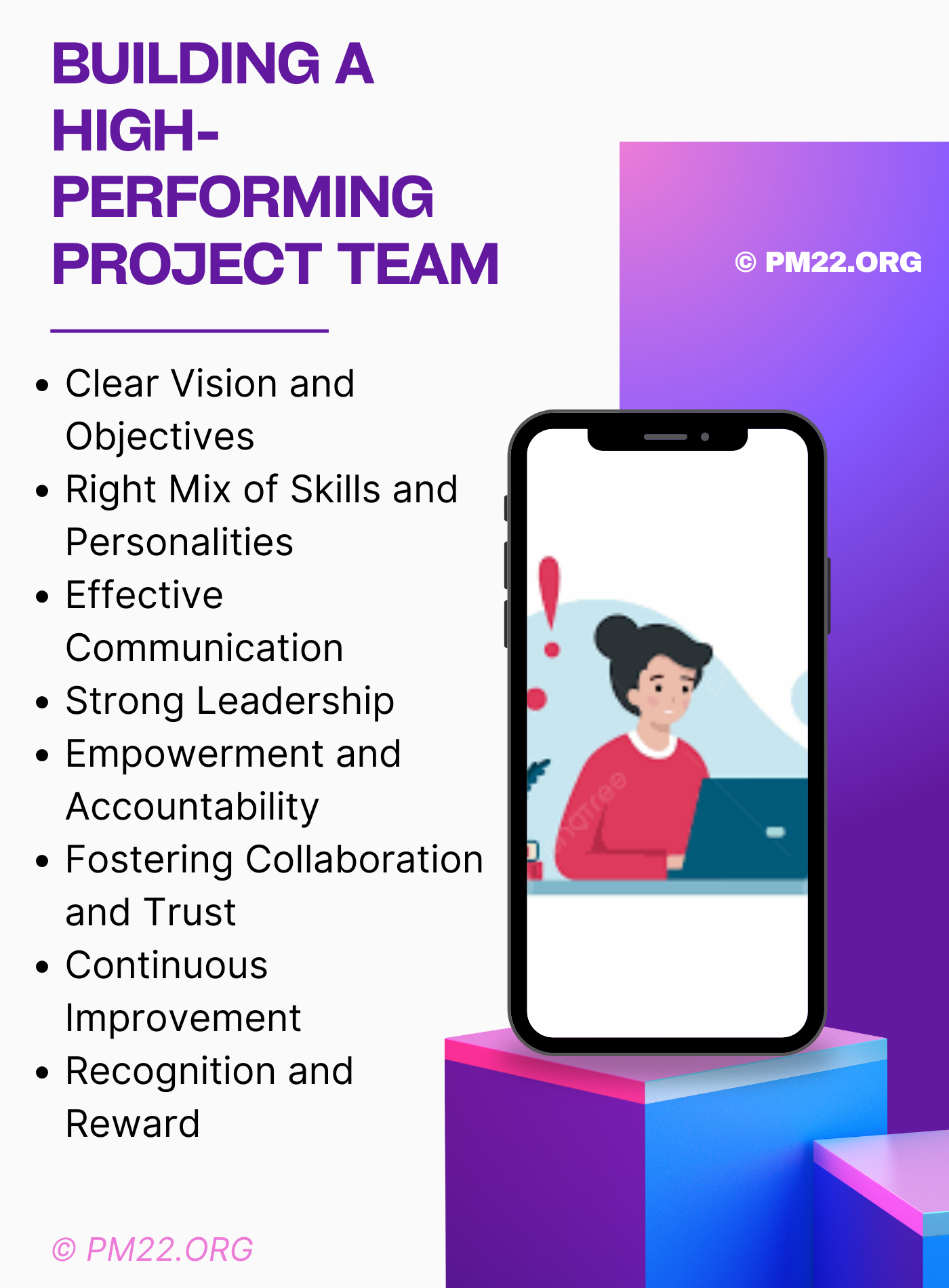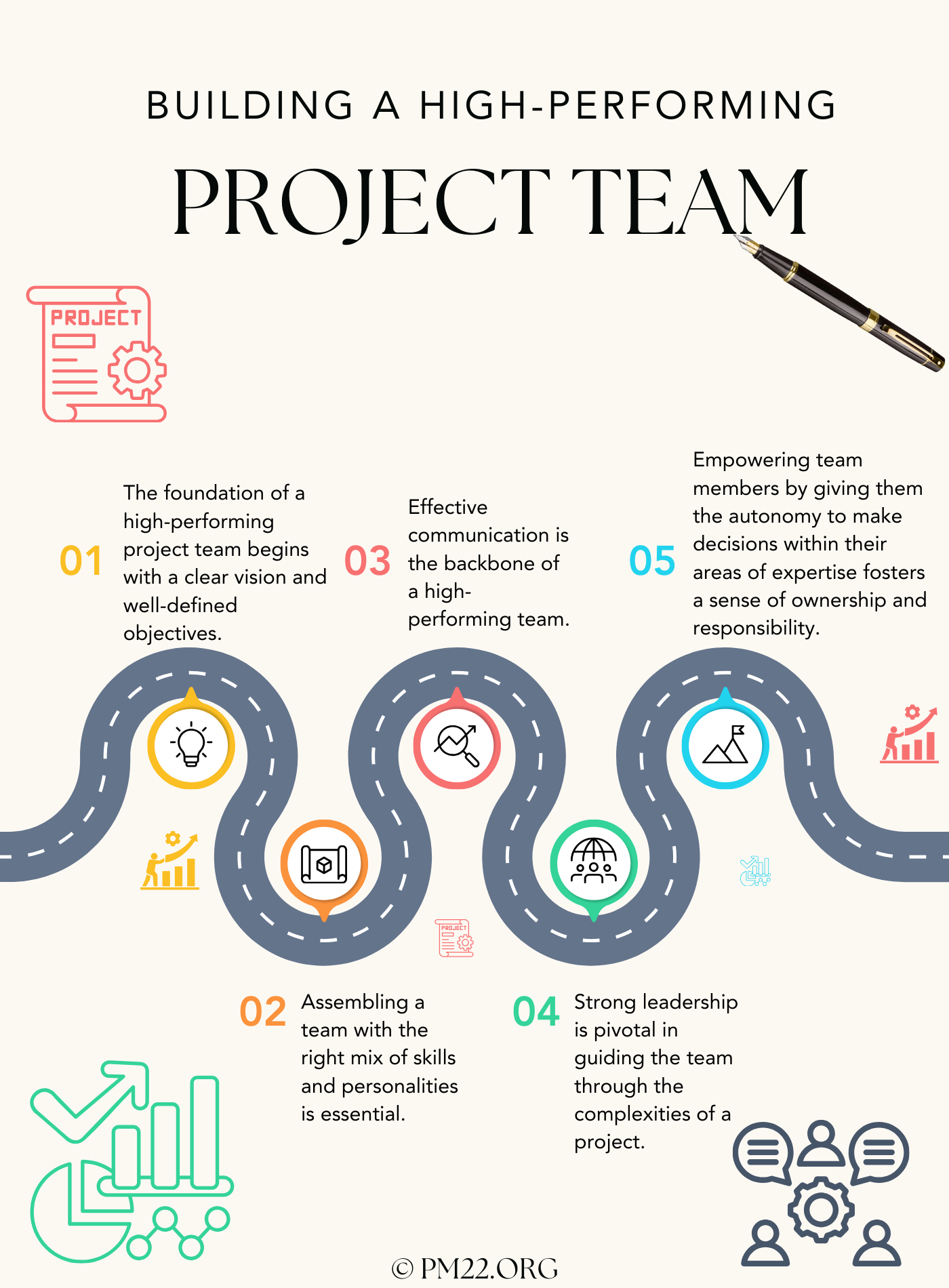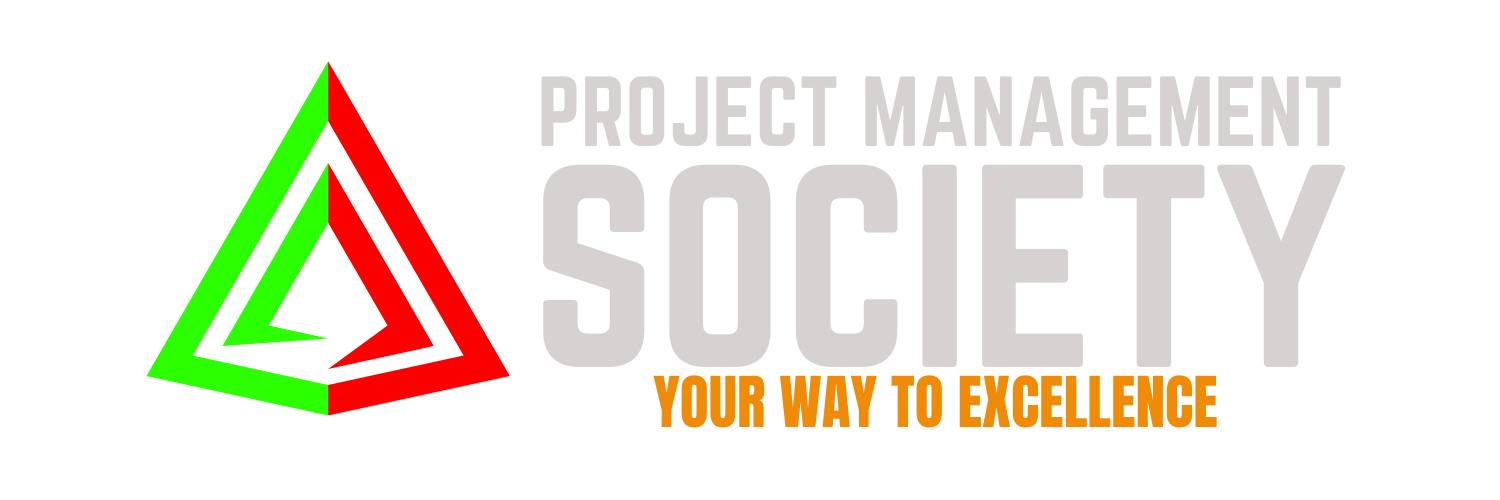 Building a high-performing project team is a crucial aspect of ensuring the success of any project. The efficacy of a project team directly influences the outcome, determining whether the project meets its goals, stays within budget, and is completed on time. Here are several key strategies to consider when forming and nurturing a high-performing project team.
Building a high-performing project team is a crucial aspect of ensuring the success of any project. The efficacy of a project team directly influences the outcome, determining whether the project meets its goals, stays within budget, and is completed on time. Here are several key strategies to consider when forming and nurturing a high-performing project team.
- Clear Vision and Objectives
The foundation of a high-performing project team begins with a clear vision and well-defined objectives. The project manager must communicate the project’s goals, timelines, and expectations to all team members. This helps in aligning the team’s efforts towards common goals and fosters a sense of purpose. Each member should understand how their role contributes to the overall success of the project.
- Right Mix of Skills and Personalities
Assembling a team with the right mix of skills and personalities is essential. This involves identifying the technical and soft skills required for the project and selecting team members who not only possess these skills but also complement each other. Diversity in skills and perspectives can drive innovation and problem-solving, while a balance in personalities ensures smooth interpersonal dynamics.
CLICK HERE TO DOWNLOAD 300+ PROJECT MANAGEMENT TEMPLATES & DOCUMENTS IN EXCEL
- Effective Communication
Effective communication is the backbone of a high-performing team. Establishing open channels of communication helps in the seamless exchange of information, quick resolution of issues, and the fostering of a collaborative environment. Regular meetings, updates, and feedback sessions keep everyone on the same page and allow for proactive management of potential challenges.
- Strong Leadership
Strong leadership is pivotal in guiding the team through the complexities of a project. A good project leader not only provides direction and motivation but also acts as a mediator, resolving conflicts and facilitating cooperation among team members. Leadership also involves recognizing and rewarding contributions, which boosts morale and encourages continued high performance.
- Empowerment and Accountability
Empowering team members by giving them the autonomy to make decisions within their areas of expertise fosters a sense of ownership and responsibility. When team members feel trusted and valued, they are more likely to take initiative and contribute meaningfully to the project. Coupled with empowerment, holding team members accountable for their tasks ensures that everyone remains committed to their responsibilities and maintains a high standard of work.
- Fostering Collaboration and Trust
Building a culture of collaboration and trust is fundamental to a high-performing team. Encouraging team members to work together, share knowledge, and support each other creates a cohesive unit that can tackle challenges effectively. Trust is built through consistent and honest interactions, transparency in decision-making, and a supportive environment where team members feel safe to express their ideas and concerns.
CLICK HERE TO DOWNLOAD 300+ PROJECT MANAGEMENT TEMPLATES & DOCUMENTS IN EXCEL
- Continuous Improvement
A high-performing project team is committed to continuous improvement. This involves regularly evaluating performance, identifying areas for improvement, and implementing changes to enhance efficiency and effectiveness. Encouraging a learning culture where feedback is welcomed and professional development is supported ensures that the team remains dynamic and capable of adapting to new challenges.
- Recognition and Reward
Recognizing and rewarding the efforts of team members is vital in maintaining motivation and morale. Celebrating milestones, acknowledging individual and team achievements, and providing incentives can drive sustained high performance. This not only boosts individual satisfaction but also reinforces the value of teamwork.
Conclusion
Building a high-performing project team is a multifaceted process that requires deliberate planning and ongoing effort. By establishing clear goals, fostering effective communication, empowering team members, and nurturing a collaborative culture, project managers can cultivate teams that are capable of delivering outstanding results. Continuous improvement and recognition further sustain high performance, ultimately leading to the successful completion of projects.
